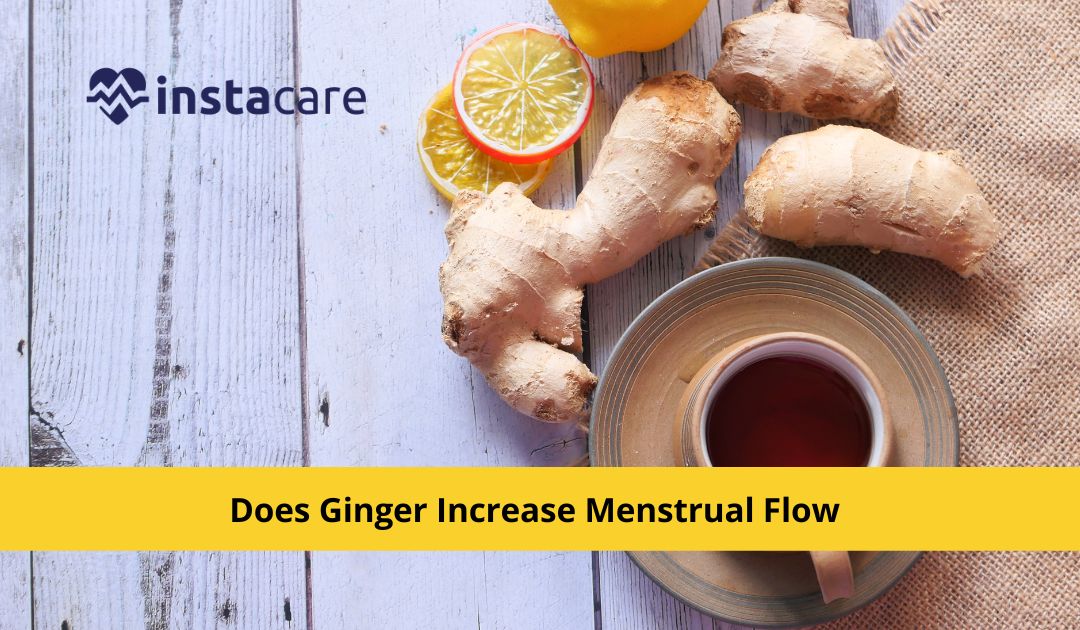A lot of women look for superfoods and natural remedies that
can help with menstrual bleeding. Ginger is one such option, as it has
properties that can thin the blood. This means that it might be able to
regulate the flow of menstrual blood in some women. Ginger is a common spice
that has many health benefits, especially for women. It can help with menstrual
cramps, heavy bleeding, and irregular periods. But does ginger increase
menstrual flow? The answer is not so simple, as ginger can have different
effects depending on the individual and the situation.
How Ginger Affects Menstrual Flow
Ginger is an emmenagogue, which means it can stimulate blood flow to the uterus and induce menstruation. This can be helpful for women who have amenorrhea (absence of periods) or oligomenorrhea (infrequent periods) due to hormonal imbalance, stress, or other factors. Ginger can also help regulate the menstrual cycle by balancing the hormones and reducing inflammation.
However, ginger can also reduce menstrual flow in some cases. According to a study published in Phytotherapy Research, ginger can lower the levels of prostaglandins, which are chemicals that cause uterine contractions and bleeding during menstruation. By inhibiting prostaglandins, ginger can decrease the amount and duration of menstrual bleeding, especially in women who have menorrhagia (heavy periods).
Therefore, ginger can have different effects on menstrual
flow depending on the individual's condition and needs. Some women may find
ginger helpful to induce or regulate their periods, while others may find it
beneficial to reduce their bleeding and cramps.
How To Use Ginger For Menstrual Problems
There are many ways to use ginger for menstrual problems, such as:
Drinking Ginger Tea
You can make ginger tea by boiling fresh or dried ginger
slices in water for 10 to 15 minutes. You can add honey, lemon, or mint to
enhance the flavor and benefits. Drink 2 to 3 cups of ginger tea a day before
and during your period.
Taking Ginger Supplements
You can also take ginger capsules or tablets that contain
standardized extracts of ginger. The recommended dosage is 250 to 500 mg of
ginger three times a day before and during your period. However, you should
consult your doctor before taking any supplements, especially if you have any
medical conditions or are taking any medications.
Eating Ginger
You can also incorporate ginger into your diet by adding it
to your dishes, salads, soups, smoothies, or desserts. Ginger can add a spicy
and aromatic flavor to your food and boost your digestion and immunity.
How Much Ginger Should You Consume To Increase Menstrual Flow?
To use ginger for managing your menstrual flow, it is generally suggested to consume 3-4 grams of ginger extract per day. Consuming more than this amount may lead to stomach irritation. There are various ways to incorporate ginger into your routine during your period, such as making ginger tea, ginger water, or mixing ginger with lukewarm honey water.
However, it is important to note that every individual's
body is different, and it's always a good idea to consult with a gynecologist
or healthcare professional before making any significant changes to your diet
or using ginger for menstrual purposes. They can provide personalized guidance
and ensure that incorporating ginger is safe and suitable for your specific
needs.
Precautions And Side Effects Of Ginger
Ginger is generally safe and well-tolerated by most people,
but it may cause some side effects or interactions in some cases. Some of the
possible side effects of ginger are:
- Heartburn
- Stomach upset
- Diarrhea
- Allergic reactions
- Bleeding problems
Ginger can also interact with some medications, such as
blood thinners, anti-diabetic drugs, anti-inflammatory drugs, and antacids.
Therefore, you should consult your doctor before using ginger if you have any
medical conditions or are taking any medications.
Ginger may also affect your menstrual cycle in unexpected
ways. For example, it may delay or advance your period, or cause spotting or
breakthrough bleeding. Therefore, you should monitor your cycle closely and adjust
your dosage accordingly.
Conclusion
Ginger is a natural remedy that can help with various menstrual problems, such as cramps, heavy bleeding, and irregular periods. However, ginger can also affect menstrual flow in different ways depending on the individual and the situation. Therefore, you should use ginger with caution and consult your doctor before using it if you have any doubts or concerns.

